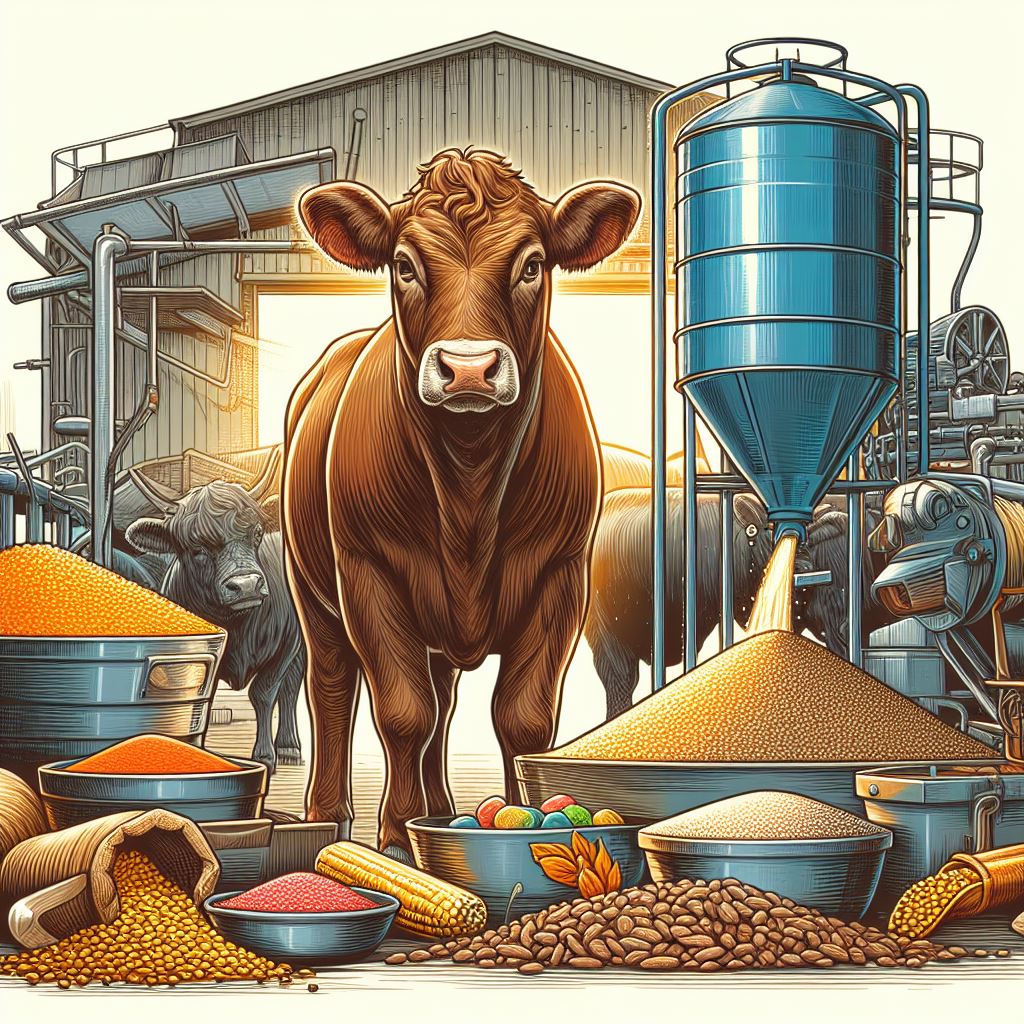
Feed Management livestock 2.jpg
Feed Management
Definition of Feed Management
Feed management refers to the strategies and practices involved in planning, delivering, and monitoring the feed provided to livestock to ensure optimal health, growth, and productivity. Effective feed management encompasses the types of feed used, the timing and method of feed delivery, and the assessment of feed efficiency and its impact on animal health and farm economics.
Overview of Effective Feed Management Strategies
Understanding Nutritional Requirements
Effective feed management begins with a thorough understanding of the nutritional requirements of different types of livestock at various stages of their growth and reproductive cycles. This involves knowing the balance of carbohydrates, proteins, fats, vitamins, and minerals that each animal needs to maintain health and maximize production.
Fall off the barn roof and busted your keister? Life on the farm or ranch can be tough on the bum. Need a break? Laugh it off at FarmerCowboy.com, the #1 farm humor site. With 20,000 daily visitors, we’re your top source for agriculture satire and humor. Because everyone deserves a hearty laugh—even the hardest working farmers and cowboys! Join us and turn those long days into fun tales at FarmerCowboy.com.
Feed Scheduling and Delivery
The timing and method of feed delivery are critical components of feed management. Regular and consistent feeding schedules help stabilize the animals’ digestive systems, which can lead to better health and higher productivity. Automated feeding systems can ensure precision in feed delivery and help in managing large-scale operations more efficiently.
Monitoring and Adjusting Diets
Continuously monitoring the condition and performance of animals is essential. This data allows farmers to make informed decisions about adjusting feed types and quantities to meet the specific needs of their livestock, potentially improving feed conversion ratios and reducing waste.
Practical Advice on Implementing Feed Management
Utilizing Feed Management Software
Many modern farms use specialized feed management software to track feed intake, cost, and efficiency across different animal groups. These tools can provide actionable suggestions to optimize feed use and improve overall farm productivity.
Training and Education
Regular training sessions for farm staff on the latest feed management techniques and animal nutrition science are invaluable. This knowledge empowers employees to recognize issues and adjust feeding protocols promptly, enhancing the overall effectiveness of farm operations.
Cost Management
Feed costs often represent a significant portion of the operational expenses in animal husbandry. Effective feed management should therefore include strategies for negotiating better prices for bulk feed purchases, exploring alternative feed sources, and minimizing feed spoilage and waste.
Advanced Techniques in Feed Management
Precision Feeding
This technique involves tailoring the type and amount of feed to the specific needs of each animal or group of animals, based on their individual performance and health metrics. Precision feeding can significantly enhance feed efficiency, reduce environmental impact, and increase profitability.
Integrating Feed Management with Overall Farm Management
Feed management should not be isolated from other aspects of farm management. Integrating feed strategies with overall health management, breeding programs, and financial planning can create synergies that enhance the sustainability and profitability of farm operations.
Research and Development
Staying updated with the latest research in animal nutrition and feed technologies is crucial. Participating in agricultural research projects and collaborating with agricultural universities and research institutes can provide insights into innovative feed management strategies and emerging trends.
Conclusion
Effective feed management is a cornerstone of successful livestock farming. By understanding and implementing advanced feed management strategies, farmers can ensure the health and productivity of their animals, optimize their resources, and enhance the sustainability of their operations.
References
- “Feed Management Practices for Livestock,” published by the National Institute of Animal Agriculture. This guide provides comprehensive details on nutritional requirements and feed management strategies for various livestock.
- “Optimizing Feed Efficiency in Animal Production Systems,” an article from the Journal of Animal Science. It discusses recent advancements in feed technology and management approaches.
- “Practical Feed Management Software,” a review on Agricultural Tech Reviews. This article compares several feed management software systems, highlighting features that are particularly useful for improving farm efficiency.
Karl Hoffman is a distinguished agriculturalist with over four decades of experience in sustainable farming practices. He holds a Ph.D. in Agronomy from Cornell University and has made significant contributions as a professor at Iowa State University. Hoffman’s groundbreaking research on integrated pest management and soil health has revolutionized modern agriculture. As a respected farm journalist, his column “Field Notes with Karl Hoffman” and his blog “The Modern Farmer” provide insightful, practical advice to a global audience. Hoffman’s work with the USDA and the United Nations FAO has enhanced food security worldwide. His awards include the USDA’s Distinguished Service Award and the World Food Prize, reflecting his profound impact on agriculture and sustainability.






